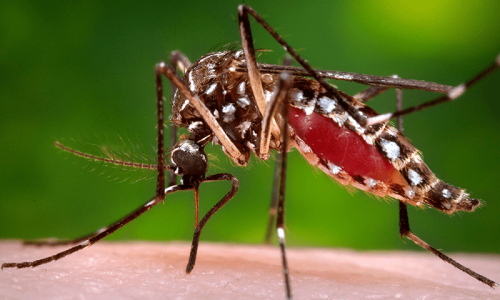RAWALPINDI: As many as 48 dengue patients were reported in three government-run hospitals in the garrison city on Monday. Out of these, 30 were from Rawalpindi city and cantonment areas, while the remaining patients were from Islamabad and adjoining areas.
According to data collected from Holy Family Hospital, Benazir Bhutto Hospital and District Headquarters Hospital, there are currently 159 dengue patients admitted across these hospitals, with 35 patients having been discharged after treatment.
A senior official at the Rawalpindi Medical University (RMU) stated that a total of 152 patients arrived at the outpatient departments (OPDs), with 48 confirmed dengue cases.
Since January, 5,878 patients have visited the OPDs of these hospitals, with 938 admitted and 459 confirmed with dengue.
He said that the influx in dengue patients occurred in early September and the trend continues to increase. The official noted that 35pc of the patients are female and 65pc male.
He said that most patients contracted the virus outdoors, with a history showing many had low immune systems. “Patients mainly come from cantonment areas and central parts of the city, especially areas along large drains and nullahs,” he said.
The District Health Authority reported that 30 patients were from Rawalpindi district, with case responses underway in their respective areas. “10 patients each came from cantonment areas, Rawal Town, and Potohar Town areas,” said a senior official of the district administration.
Chief Executive Officer of the District Health Authority Dr Asif Arbab Niazi told Dawn that dengue cases this year were fewer than last year. He said an aggressive campaign had been launched across all union councils of the district.
“A massive evening fogging operation was carried out in areas such as Union Council Chak Jalaldin, Ratta Amral, Kotha Kalan and Gulistan Colony, where more than three patients are reported daily. People are advised to prevent water accumulation in their homes and rooftops,” Dr Niazi said.
He said that all basic health units and rural health units have been directed to accommodate people arriving with high fever, and to conduct rapid dengue tests followed by referral to the nearest hospital for treatment.
Meanwhile, the Rawalpindi Development Authority (RDA) has also intensified its efforts. Additional Director General Awais Manzoor Tarar directed private housing schemes under RDA control to collaborate with the district administration, as an effort to curb the spread of dengue.
At a meeting with housing scheme owners, Mr Tarar instructed that each scheme appoint a focal person to oversee anti-dengue measures and report regularly. “These focal persons will coordinate closely with the Assistant Director of Planning, RDA and provide regular reports, including pictorial evidence of their efforts to control dengue”, he said.
He warned that if dengue larvae are found in any housing society, an FIR will be lodged against the owners or sponsors of the scheme. He further emphasised the need for both immediate and long-term strategies to safeguard public health.



